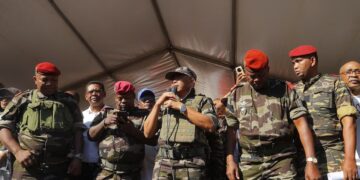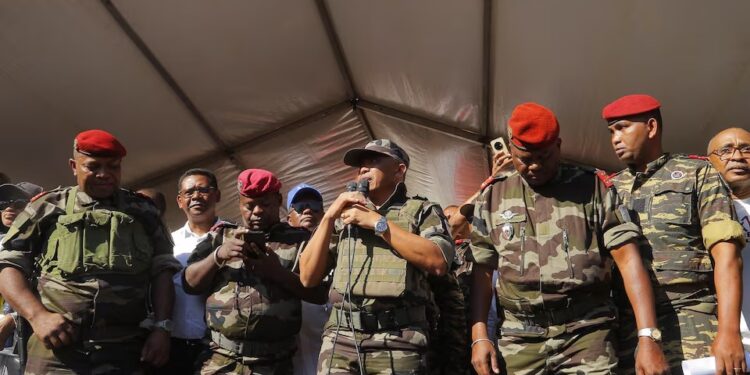By Enyichukwu Enemanna
Madagascar’s parliament on Tuesday impeached President Andry Rajoelina after he fled the country, following weeks of youth-led demonstrations that has brought the African nation to a standstill.
Meanwhile, an army commander who led a mutiny in the country also on Tuesday announced that the military had taken power to rule for a period of 24 months.
“We have taken the power,” Colonel Michael Randrianirina declared on national radio and said that the military was dissolving all institutions except the lower house of parliament or National Assembly.
Randrianirina later told reporters that a committee led by the military would rule the country for a period of up to two years alongside a transitional government before organising new elections.
“The following institutions are suspended: the Senate, the High Constitutional Court, the Independent National Electoral Commission, the High Court of Justice, and the High Council for the Defense of Human Rights and the Rule of Law,” a statement from the country’s military leaders said.
In a day of turmoil for the nation off southern Africa’s coast, the 51-year-old Rajoelina, whose whereabouts are unknown, earlier sought to dissolve the lower house by decree.
But lawmakers went ahead with a vote to impeach him, leaving the country in a constitutional deadlock which the military seized upon to declare they were taking charge.
Rajoelina, who himself came to power in a coup in 2009, condemned the power grab by the military in a statement.
Randrianirina, a commander in the elite CAPSAT army unit that played a key role in Rajoelina’s 2009 coup, broke ranks with him last week.
In an address to the nation on Monday night, Rajoelina said that he had been forced to move to a safe place because of threats to his life.
Reuters quoted opposition official, a military source and a foreign diplomat as saying that Rajoelina fled the country on Sunday aboard a French military plane.
Demonstrations first erupted in the country on September 25 over water and power shortages but quickly escalated into an uprising over broader grievances, including corruption, bad governance and a lack of basic services.
The Gen-Z protesters rejected an invitation by the ousted President to have talks, instead insisting on his resignation.
Rajoelina had raised alarm over the failure of the military to quell the unrest, saying the subtle backing was a sign that military was preparing to grab power.




































